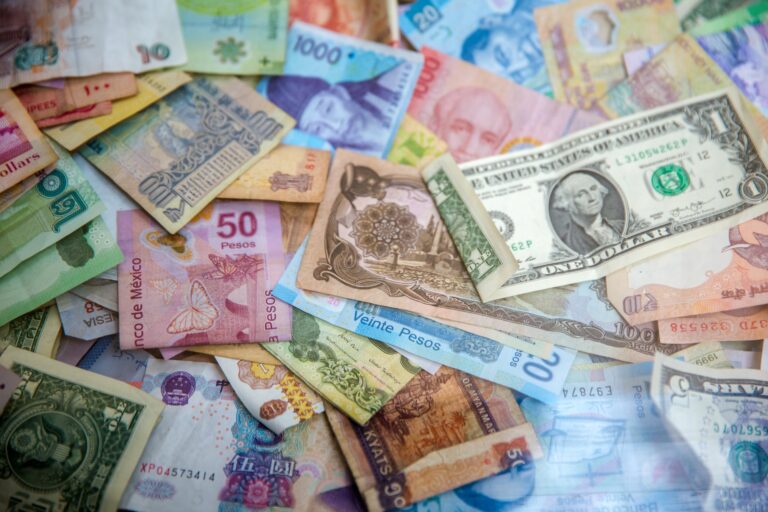Key Highlights
- Exchange rates show how much one currency is worth when compared to another. They are usually shown in pairs like GBP/USD or EUR/USD.
- These rates change due to supply and demand, economic facts, and central bank rules.
- Influences like inflation, interest rates, political calmness, and how the market does all play big parts.
- Changes in exchange rates influence global trade, business profits, investment gains, and travel costs for people.
- A good grasp of currency changes helps people and businesses make better choices for their money globally.
In today’s fast-moving world, exchange rates mean more than just numbers. They show how stable a country’s economy is and help know how trade happens between countries. If you are a business owner, investor, or traveler, it is important to understand what makes currency values go up or down. By learning this, you can better handle risks and chances in the global market.
What Are Exchange Rates and Why Do They Fluctuate Currency?
An exchange rate shows how much one currency is worth against another. For example, if the EUR/USD exchange rate is 1.10, you can get 1.10 U.S. dollars for one euro. But these rates don’t stay the same. They change all the time. This is due to supply and demand, the state of the economy, and people’s trust in a country’s money and government systems.
Key Drivers of Currency Fluctuations:
- Supply and Demand: When more people want a currency, its value usually goes up. If there is too much of it, the value can go down.
- Economic Indicators: Information like GDP growth, inflation, jobs, and retail sales can change how the market feels and how investors act.
- Monetary Policy: Central banks can affect how strong a currency is by deciding on interest rates and making changes in money supply.
- Political Stability: Countries with open and stable governments tend to bring in more investment from outside. This helps their currency to stay strong.
How Supply and Demand Impact Currency Value
A currency’s value depends a lot on how much people want it. When more people want what a country exports, they also want its currency more. This can help raise its exchange rate. On the other hand, if there is too much currency or if interest around the world drops, the currency might get weaker.
Example: If global investors think there will be economic growth in the U.S., they might buy American bonds or stocks. To buy these, they need U.S. dollars. This raises the demand for the dollar and increases its value.
Central banks can change the supply by adjusting interest rates. They can also use methods like quantitative easing or tightening.
Economic Indicators and Their Effect on Exchange Rates and Currency
Economic performance plays a big role in how exchange rates change. Here are the main indicators you should keep an eye on:
- Inflation: Low inflation usually helps a currency stay strong. It keeps purchasing power and makes people feel sure about investing. High inflation makes things worse.
- Interest Rates: When interest rates go up, they can attract more money from outside. This raises the demand for the currency. Still, very high rates can slow down the economy and hurt value over time.
- GDP Growth: A steady and strong GDP growth often shows a strong economy. This can increase trust in that country’s currency.
- Employment Levels: Low unemployment often shows a healthy economy and can support a stronger currency.
Watching these indicators can help people and businesses predict changes in the forex market.
Key Factors Behind Exchange Rate Volatility
Inflation Rates
Stable, moderate inflation shows that the economy is growing well. It can make a currency more appealing around the world. However, when inflation runs out of control, it reduces value and can cause a drop in the forex markets.
Interest Rates
Rising interest rates usually make a currency more attractive. This happens because returns on local investments go up. But if interest rates rise too quickly, borrowing slows down. This leads to less consumer spending and may cause the overall economy to weaken.
Political Stability
Investors like certainty. Political stability makes a secure place for investment. This security raises the demand for a country’s currency. If there is unrest or unclear policies, it can cause money to leave and lower exchange rates.
Real-World Impacts of Exchange Rate Changes
For Businesses
Exchange rate changes impact almost every company involved in global trade.
- Exporters have an advantage when their home currency is weaker. It makes their products cheaper in other countries.
- Importers do better when their home currency gets stronger because it makes foreign goods less expensive.
- Multinational firms can see changes in profit when they change their earnings from other countries back into their local currency.
To keep safe, companies often use tools like hedging or forward contracts. These help them lower the risk of currency changes.
For Travelers
Thinking about a vacation abroad? Changes in different currencies can either help you save money or raise your costs.
| Scenario | Impact on Travel Costs |
|---|---|
| Strong home currency | Cheaper travel and shopping abroad |
| Weak home currency | More expensive international trips |
If your home currency gets stronger compared to the euro or yen, traveling to Europe or Japan costs less. However, if your currency weakens, those trips can be much more expensive.
Key Takeaways
Exchange rates show us the economic and political situations of countries. Many things shape them. These include interest rates, inflation, political stability, and how global investors feel. Knowing how these factors work together helps you see the current state of the world. This knowledge can help you make better plans.
Whether you are deciding on business deals, putting money in global markets, or planning your next trip, knowing about exchange rate trends can help you feel sure and make better choices that save money.
